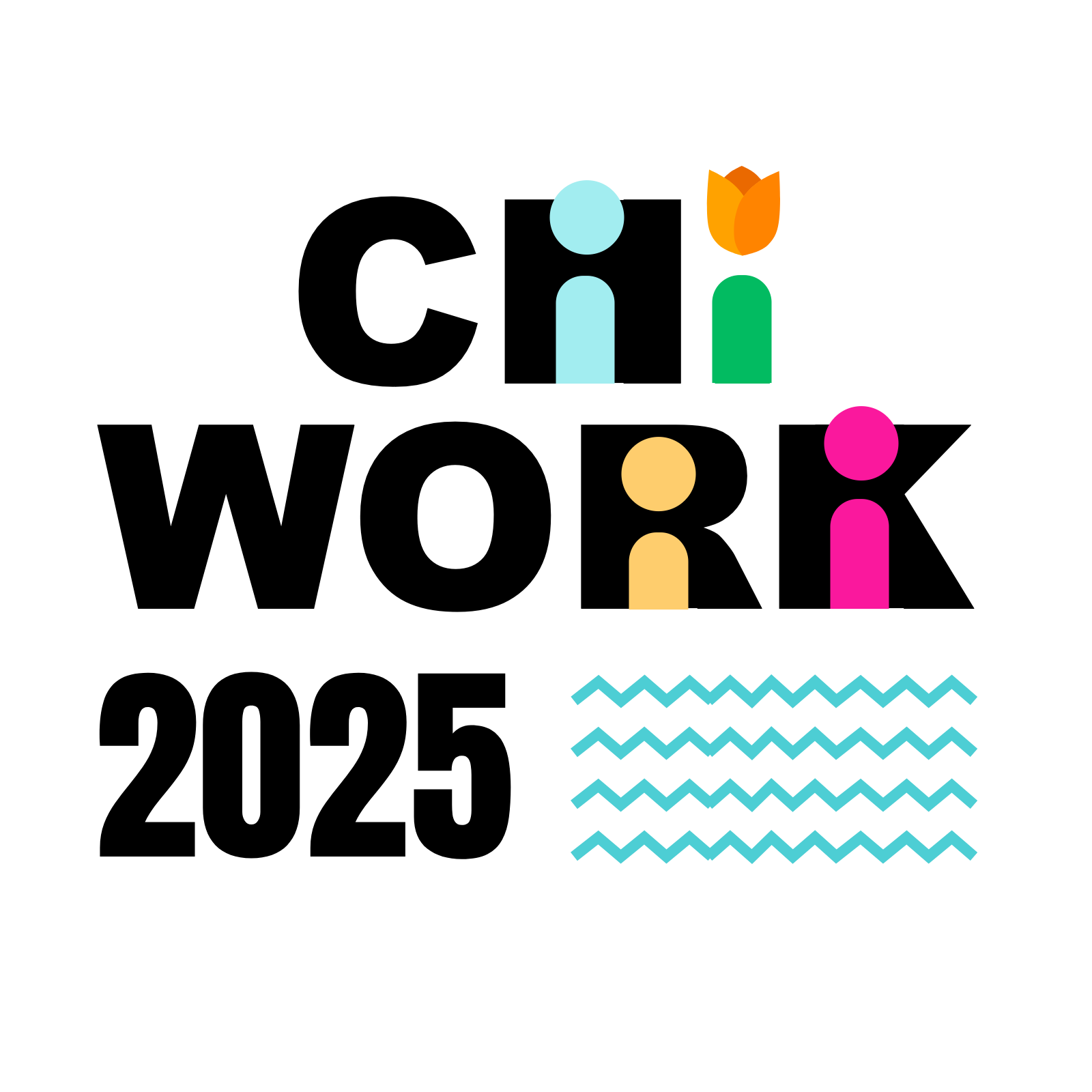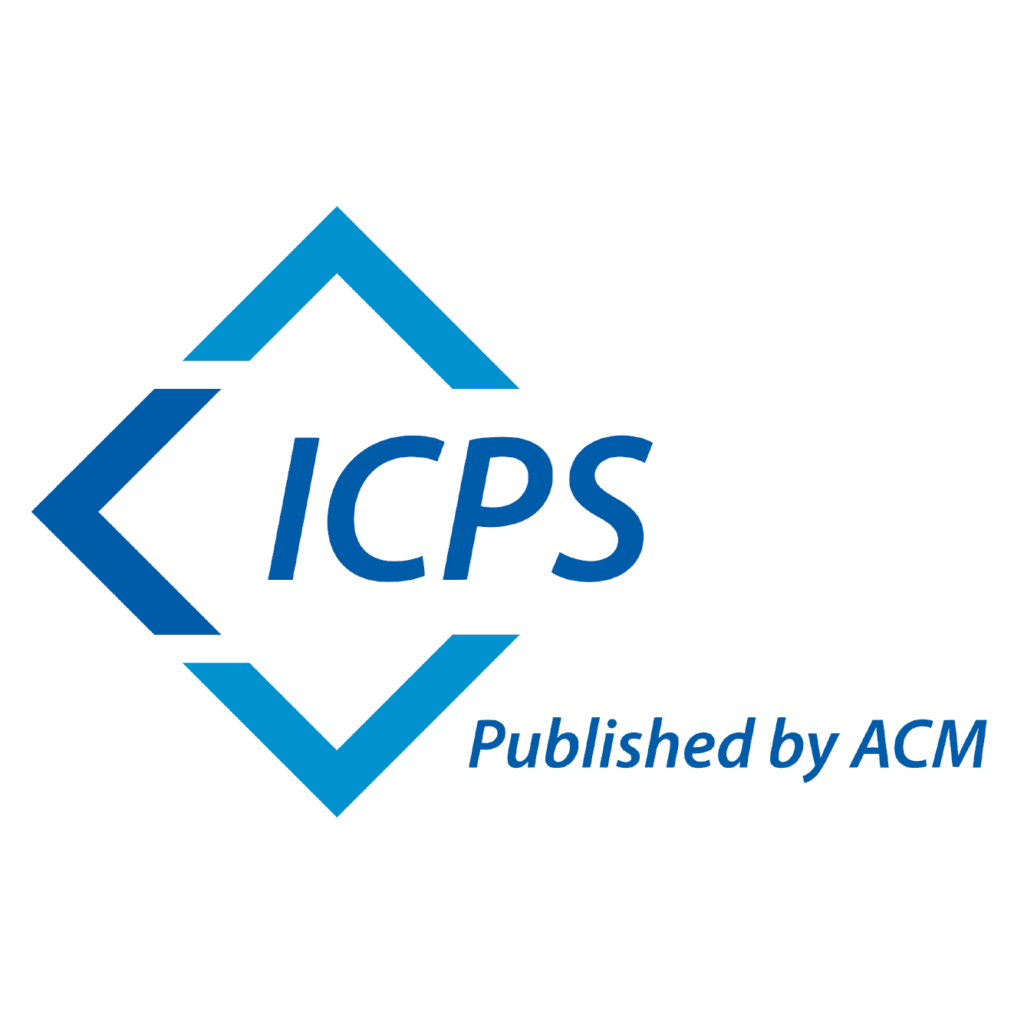
Welcome to CHIWORK 2025
June 23-25, 2025 | Amsterdam, The Netherlands
The Symposium on Human-Computer Interaction for Work (CHIWORK) aims to grow our understanding of how HCI will support work in the future. Advances in Computing technology are rapidly changing the way we work. Human-computer interaction (HCI) is a critical aspect of this ongoing change, as a way to support workers in successfully navigating fast-paced changes in working environments, which might include novel computing devices, new sensing and work(er) wellbeing and performance measurement techniques, interacting with AI agents, and the new roles for people in work environments where automation is increasing.
The general chairs, Shadan Sadeghian and Abdallah “Abdo” El Ali, look forward to welcoming you virtually or in-person to the 4th CHIWORK 2025 Symposium in Amsterdam (The Netherlands) at the Centrum Wiskunde & Informatica (CWI) from June 23rd-25th, 2025.
🔔 NATO Summit 2025: Possible travel disruptions from June 22-26 🔔
➡️ please plan accordingly when booking / making your way to CHIWORK ’25!
Important Dates
| Track | Submission | Notification |
|---|---|---|
| Full paper | ||
| Workshops | (extended deadline) | (extended deadline) |
| Conversations | (extended deadline) | (extended deadline) |
| Late Breaking Work | (extended deadline) | |
| Demos | (extended deadline) | |
| Student Consortium |
Dates specified as Anywhere on Earth (AoE) time
Theme
Threads of Work: Weaving People, Technology, and Purpose
In an era where work is being reshaped by digital innovation, Threads of Work invites us to explore how people, technology, and purpose interlace to create dynamic physical or digital workscapes. This theme celebrates the intricate connections between human values and digital tools, urging us to craft work environments that are not only productive but meaningful and inclusive. As automation, AI, and remote platforms redefine how we connect and contribute, we are called to design with empathy, fairness, and resilience. Join us as we investigate the future of work, weaving new patterns that bridge human potential, technological advancement, and purposeful impact.
CHIWORK’25 welcomes work addressing Human-Computer Interaction for working environments in the broadest possible sense. In addition, we particularly encourage submissions that address the conference theme.
Topics of Interest
See the full Call for Papers →
- Tools for remote work
- New ways of getting work done
- Working and trust with AI and automation
- Technologies for the future of work
- Workplace psychology
- Supporting worker well-being and health
- Designing digital tools
- Matching and developing worker skills for job opportunities
- Inclusion and accessibility
- Large language models at work
- Security and privacy
- Novel ways of sensing and measuring outcomes
- Tools and platforms for hiring and managing workers
- Societal Impact
- Human-AI collaboration in the future of work





Mobile Version of the website

Welcome to CHIWORK 2025
June 23-25, 2025 | Amsterdam, The Netherlands
The Symposium on Human-Computer Interaction for Work (CHIWORK) aims to grow our understanding of how HCI will support work in the future. Advances in Computing technology are rapidly changing the way we work. Human-computer interaction (HCI) is a critical aspect of this ongoing change, as a way to support workers in successfully navigating fact-packed changes in working environments, which might include novel computing devices, interacting with AI agents, and the new roles for people in work environments where automation is increasing.
The general chairs, Shadan Sadeghian and Abdallah “Abdo” El Ali, look forward to welcoming you virtually or in-person to the 4th CHIWORK 2025 Symposium in Amsterdam (The Netherlands) at the Centrum Wiskunde & Informatica (CWI) from June 23th-25th, 2025.
Important Dates
| Track | Submission | Notification |
|---|---|---|
| Full paper | (extended deadline) February 7, 2025 | March 31, 2025 |
| Workshops | (extended deadline) March 6, 2025 | (extended deadline) March 20, 2025 |
| Conversations | (extended deadline) April 7, 2025 | March 27, 2025 |
| Late Breaking Work | (extended deadline) April 7, 2025 | April 19, 2025 |
| Demos | (extended deadline) April 7, 2025 | April 19, 2025 |
| Student Consortium | April 17, 2025 | May 2, 2025 |
Dates specified as Anywhere on Earth (AoE) time
Theme
Threads of Work: Weaving People, Technology, and Purpose
In an era where work is being reshaped by digital innovation, Threads of Work invites us to explore how people, technology, and purpose interlace to create dynamic physical or digital workscapes. This theme celebrates the intricate connections between human values and digital tools, urging us to craft work environments that are not only productive but meaningful and inclusive. As automation, AI, and remote platforms redefine how we connect and contribute, we are called to design with empathy, fairness, and resilience. Join us as we investigate the future of work, weaving new patterns that bridge human potential, technological advancement, and purposeful impact.
CHIWORK’25 welcomes work addressing Human-Computer Interaction for working environments in the broadest possible sense. In addition, we particularly encourage submissions that address the conference theme.
🔔 NATO Summit 2025: Possible travel disruptions from June 22-26 🔔
➡️ please plan accordingly when booking / making your way to CHIWORK ’25!
Topics of Interest
See the full Call for Papers →
- Tools for remote work
- New ways of getting work done
- Working and trust with AI and automation
- Technologies for the future of work
- Workplace psychology
- Supporting worker well-being and health
- Designing digital tools
- Matching and developing worker skills for job opportunities
- Inclusion and accessibility
- Large language models at work
- Security and privacy
- Novel ways of sensing and measuring outcomes
- Tools and platforms for hiring and managing workers
- Societal Impact
- Human-AI collaboration in the future of work

